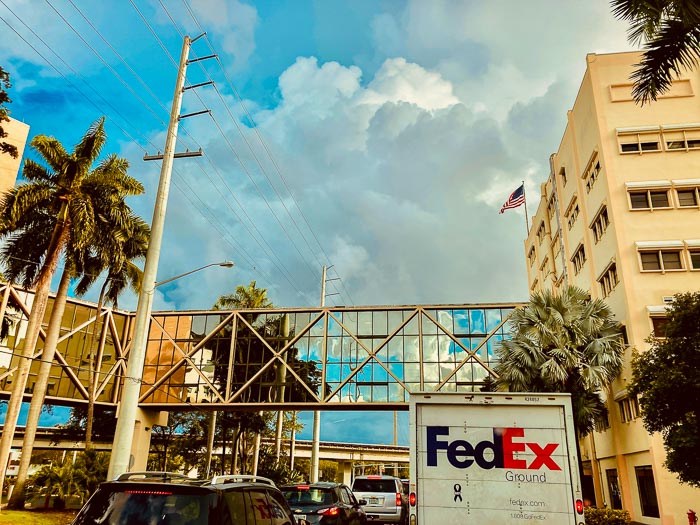
Random Pic

Some Chicago Boyz know each other from student days at the University of Chicago. Others are Chicago boys in spirit. The blog name is also intended as a good-humored gesture of admiration for distinguished Chicago School economists and fellow travelers.

Comments are closed.
Nice pic! Ever since I learned the inside story of the FedEx logo I stare at the arrow now
FedEx logo and blue sky and big puffy clouds and cars picture is very nice!
Sidebar — discussion about the US manufacturing base and its significance.
Can America Build A Broad-Based Economy?
https://lawliberty.org/forum/can-america-build-a-broad-based-economy/
(H/T: Cafe Hayek)
Money Quote:
Thus, while American manufacturing constitutes a smaller slice of the U.S. economy than the services sector, it is more sophisticated and productive than it was 50 years ago. The oft-repeated mantra of economic nationalists that America is de-industrializing is simply false. The service sector may have grown faster and bigger, but that doesn’t imply that the manufacturing sector’s output has shrunk. It simply means that manufacturing’s overall share of the U.S. economy was many times bigger 50 years ago.
I’ve been maintaining this for a good while.
I agree, Covid has shown the downsides of having things made elsewhere and shipped here, but that does not mean that everything need be made here, only that we need a small amount of it and/or a reasonable shock-resistant stockpile in place of a pure JIT zero-inventory solution. Covid’s interruptions are made much more significant because of pure JIT zero-inventory than because of anything else.
Moreover, it was destined to have at least a lot of it come back anyway, as robotic factories are generally better and more cost effective than cheap foreign labor. Process the raw materials on-site, then ship the intermediate products to the robotic factories for further processing/assembly or for final manufacturing.
Be serious! Regardless of how productive the manufacturing sector is, in the long run a country has to balance its books. The US is failing to balance its trade — admittedly offset to some extent by selling off the US heartland to foreigners. The trade imbalance will not last forever.
The biggest obstacle to bringing industry back from overseas is the huge deadweight of bureaucratic regulation in the US. Unless & until we deal with that over-regulation, the standard of living (for everyone except bureaucrats) will continue to decline. And eventually, even the bureaucrats will suffer.